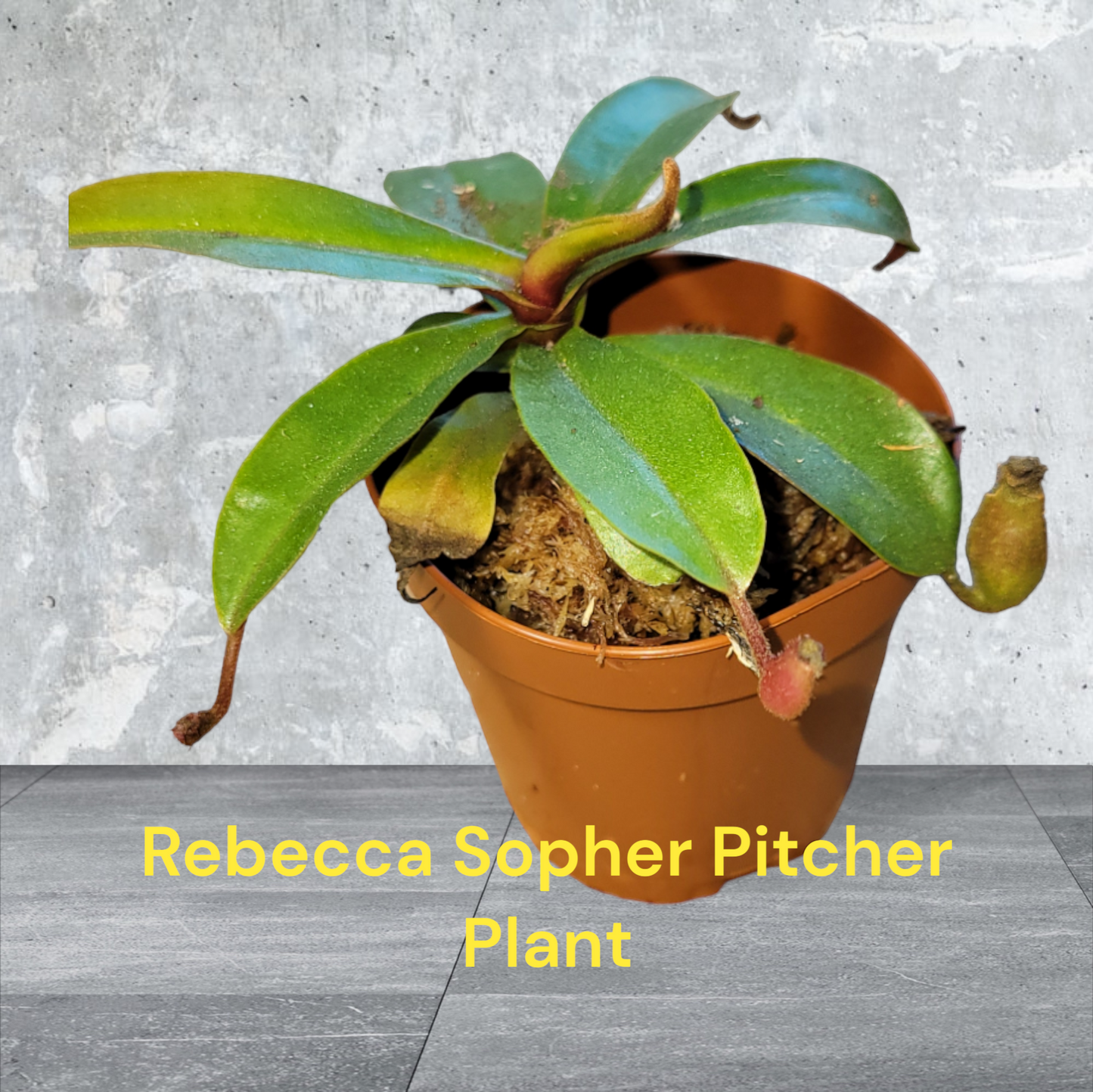Carnivorous Rebecca Sopher Pitcher Plant two inch starter plant
Carnivorous Rebecca Sopher Pitcher Plant two inch starter plant
Couldn't load pickup availability
Rebecca sopher Pitcher Plant is a rare plant named after Botanist and illustrator Rebecca Sopher.
Pitcher plants are a fascinating group of carnivorous plants that belong to the Nepenthaceae family. These plants are known for their unique pitcher-shaped leaves that act as specialized traps to capture and digest insects and other small prey. There are several species of pitcher plants found in different parts of the world, with the most famous ones being the tropical pitcher plants (Nepenthes) and the North American pitcher plants (Sarracenia).
Here are some key features of pitcher plants:
1. **Pitcher Shape**: The most distinctive feature of pitcher plants is their pitcher-shaped leaves that are modified to form a tubular structure with a lid on top and a fluid-filled cavity at the base. This cavity is filled with digestive enzymes that help break down the trapped prey.
2. **Attracting Prey**: Pitcher plants use a combination of colors, scents, and nectar to attract insects and other small animals into their pitchers. Once inside, the prey becomes trapped and is unable to escape due to downward-pointing hairs and slippery surfaces inside the pitcher.
3. **Nutrient Absorption**: After trapping prey, pitcher plants secrete digestive enzymes into the pitcher fluid to break down the prey's body tissues. The plant then absorbs the nutrients released from the digestion process to supplement its nutrient-poor growing conditions.
4. **Habitats**: Pitcher plants are often found in nutrient-poor environments such as bogs, swamps, and other wetlands where they have evolved to supplement their nutrient intake by capturing and digesting insects.
5. **Conservation**: Many species of pitcher plants are threatened by habitat loss, overcollection, and other factors. Conservation efforts are underway to protect these unique plants and their habitats.
If you have any specific questions about pitcher plants or if you would like more information on a particular aspect of these fascinating plants, feel free to ask!
Share

